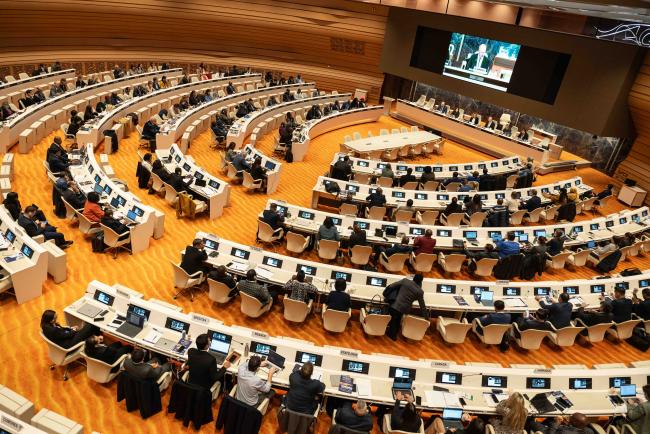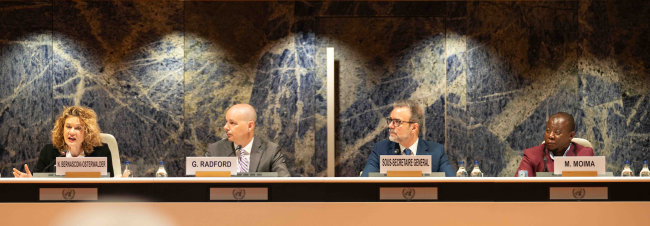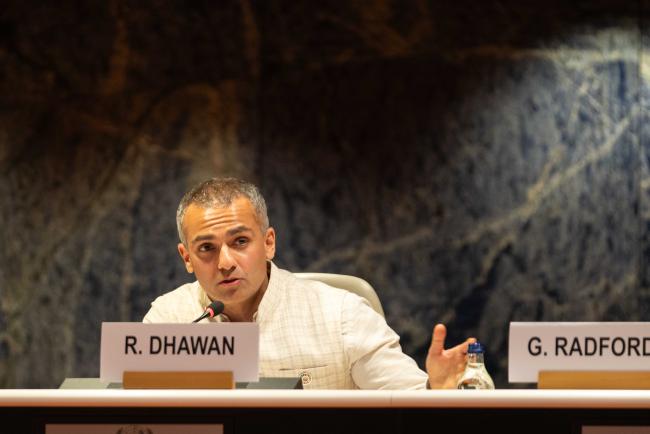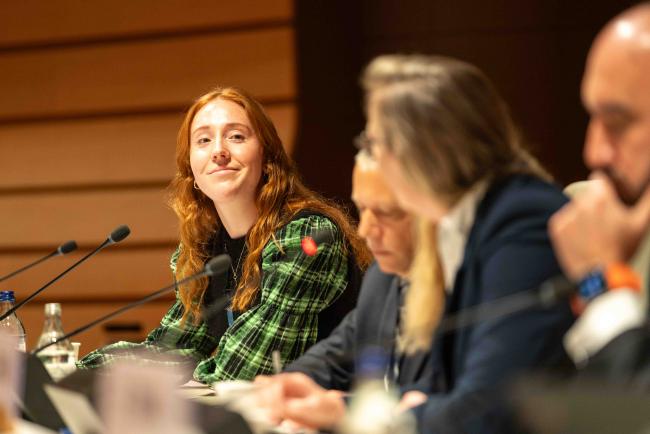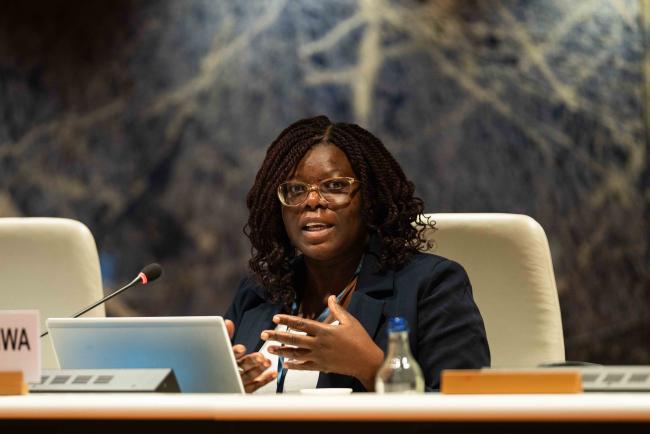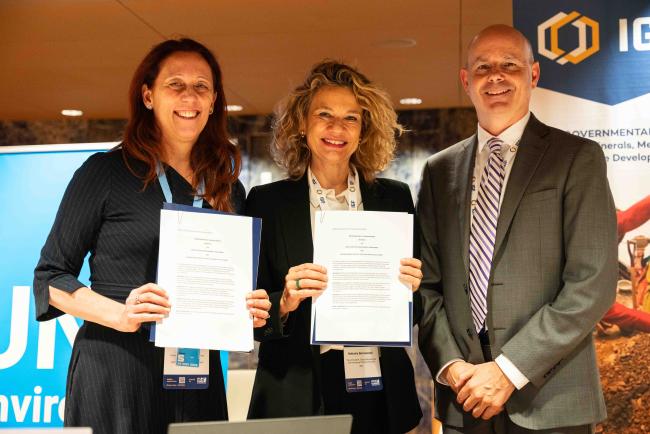“Communities should not just survive mining; they should thrive from it.” Opening speakers at the 20th Annual General Meeting (AGM) of the Intergovernmental Forum on Mining, Minerals, Metals and Sustainable Development (IGF) urged redefining the current paradigm so that as mining accelerates to meet rising critical minerals demand, it equitably distributes mineral value addition and benefits, uplifts communities, and protects the environment. Monday sessions also looked at strategies to increase the supply of critical minerals and the development of value chains, whether circularity can help bridge the supply gap in critical minerals, and what fiscal policies can stimulate value addition.
The opening session on redefining mining focused on the principles and recommendations of the report of the UN Secretary-General’s Panel on Critical Energy Transition Minerals. Pedro Manuel Moreno, Deputy Secretary-General, UN Trade and Development (UNCTAD), discussed how the UN is working to implement the recommendations on establishing a High-Level Expert Advisory Group on greater benefit sharing and value addition in value chains, and launching a process on mineral traceability, transparency, and accountability. Mohato Moima, IGF Executive Committee Chair (Lesotho), highlighted work of the Southern African Development Community (SADC) on a shared mining investment framework.
International Institute for Sustainable Development (IISD) Vice President Natalie Bernasconi-Osterwalder focused on three aspects of the report: value distribution and equity; the mining sector’s relationship with nature; and the role of mining in the circular economy. Adam Matthews, Chair, Global Investor Commission on Mining 2030, emphasized the importance of the Panel recommendation for creating a Global Mining Legacy Fund.
International Council on Mining and Metals (ICMM) CEO Rohitesh Dhawan explained the challenges facing implementation of the Panel recommendation on mineral traceability, transparency, and accountability. Gerald Mwila, Zambia, reviewed the challenges of the recommendation on artisanal and small-scale mining. Yasuko Nishimura, Japan, discussed the recommendation on establishing targets and timelines for material efficiency and circular economy approaches in mining.
In the session on accelerating supply, Clovis Freire, UNCTAD, stressed the need to ensure the critical minerals rush results in shared prosperity, not more inequality. Adam Matthews called for regular, structured investor-community engagement with platforms such as IGF. Roger Hamberg, Joint Research Centre, European Commission, highlighted the role of the European Union’s Critical Raw Materials Act. Kitsiri Kaewpipat, Thailand, shared her government’s efforts to streamline mining permitting processes without compromising national development goals or environmental and social responsibilities.
In discussions on whether circularity can help bridge the supply gap, Moderator Inga Petersen, Executive Director, Global Battery Alliance, said today’s International Energy Agency report on Recycling of Critical Minerals offers some hope on strategies to scale up recycling and urban mining. Sarah Colbourn, Benchmark Minerals Intelligence, said USD 1.6 trillion is needed to meet expected 2040 battery demand, with USD 190 billion needed for lithium alone. Elisa Tonda, UN Environment Programme (UNEP), presented a new UNEP working paper on circularity, equity, and responsibility, emphasizing the “8 Rs of an equitable green transition”: reduce, replace, rethink, reuse, retain, recover, recycle, and responsible mining.
Christian Spano, Vale Base Metals, stressed a focus on circularity, aiming at minimizing waste, rather than recycling, which would require more waste before generating enough critical minerals to help fill the gap. James Barry, US Geological Survey, discussed projects to look at potential recovery of rare earth elements from tailings and lithium from oil and gas production water.
In the session on fiscal policies to incentivize value addition, moderator Naadira Ogeer, Commonwealth Secretariat, urged governments to step up their game: “to make clear what we’re giving up and what we’re getting in return.” Ecuador and Zimbabwe discussed the fiscal policy measures they have taken to incentivize the mining industry. Ekpen Omonbude, IGF Secretariat, cautioned that striking the right balance between the various elements of the fiscal regime is challenging, as overly stringent measures risk eroding value or deterring investment altogether.
During lunch, a side event on Trade and Investment Agreements for Critical Mineral Supply Chains took place. A brief afternoon ceremony commemorated the signing of a memorandum of understanding between IGF and UNEP on strengthening their partnership to accelerate progress on achieving environmental sustainability of mining, minerals, and metals management.
To receive free coverage of global environmental events delivered to your inbox, subscribe to the ENB Update newsletter.
All ENB photos are free to use with attribution. For the 2024 IGF AGM please use: Photo by IISD/ENB | Mika Schroder
Session 1: Official Opening and Scene Setting

Nathalie Bernasconi-Osterwalder, Vice-President, Global Strategies and Managing Director, Europe, IISD

Yasuko Nishimura, Director, Resource Security Division, Economic Affairs Bureau, Ministry of Foreign Affairs, Japan

